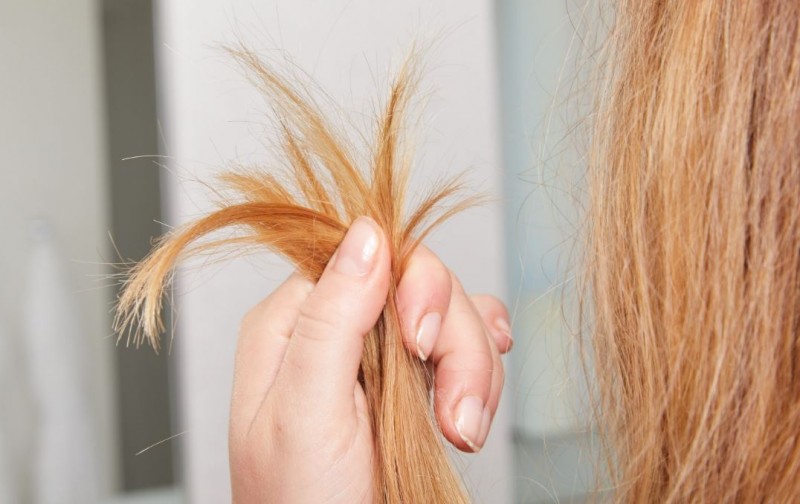
Hair care is a vital aspect of personal grooming, and split ends are a common concern faced by many individuals. Despite efforts to treat them, split ends often recur, leading to frustration and dissatisfaction with one's hair health. In this comprehensive guide, we will delve into the reasons behind the recurrence of split ends and explore detailed measures to prevent their repeated occurrence.
Dryness as a Cause of Split Ends:
Dryness is one of the primary reasons for the development and recurrence of split ends in hair. When hair lacks proper moisture and hydration, it becomes brittle and prone to splitting at the ends. Factors such as environmental conditions, excessive heat styling, and over-washing can contribute to dryness in hair.
To combat dryness and prevent split ends from recurring:
Use moisturizing hair care products: Choose shampoos, conditioners, and leave-in treatments specifically formulated to hydrate and nourish the hair. Look for ingredients such as coconut oil, argan oil, and shea butter, known for their moisturizing properties.
Limit heat styling: Excessive use of heat styling tools like flat irons and curling wands can strip the hair of its natural moisture, leading to dryness and split ends. Whenever possible, air dry your hair or use heat protectant sprays before styling with heat.
Avoid over-washing: Washing your hair too frequently can strip away the natural oils that keep it moisturized. Aim to wash your hair no more than two to three times a week, using lukewarm water and sulfate-free shampoo.
By addressing dryness effectively, you can significantly reduce the recurrence of split ends and improve the overall health and appearance of your hair.
Over-treatment and Chemical Damage:
Another common cause of split ends is over-treatment and chemical damage resulting from various hair treatments and styling practices. Processes such as bleaching, coloring, perming, and chemical straightening can weaken the hair shaft and make it more susceptible to splitting.
To prevent split ends caused by over-treatment and chemical damage:
Choose gentle hair treatments: Opt for gentler alternatives to harsh chemical treatments, such as ammonia-free hair dyes and semi-permanent color options. Consider natural hair treatments like henna or herbal rinses to minimize chemical damage.
Limit the frequency of treatments: Avoid over-processing your hair by spacing out chemical treatments and allowing sufficient time for your hair to recover between sessions. Consult with a professional stylist to determine the optimal interval between treatments based on your hair type and condition.
Deep condition regularly: Incorporate deep conditioning treatments into your hair care routine to replenish moisture and strengthen the hair shaft. Look for deep conditioning masks or treatments enriched with protein and keratin to repair damage and prevent split ends.
By adopting a more cautious approach to hair treatments and prioritizing the health of your hair, you can minimize the risk of split ends caused by over-treatment and chemical damage.
Environmental Factors and Sun Exposure:
Environmental factors, including exposure to sunlight, pollution, and harsh weather conditions, can also contribute to the recurrence of split ends in hair. Ultraviolet (UV) radiation from the sun can damage the hair cuticle, leading to dryness, breakage, and split ends.
To protect your hair from environmental damage and prevent split ends:
Use UV protection products: Invest in hair care products specifically formulated to provide UV protection, such as leave-in conditioners or styling sprays with built-in SPF. These products create a barrier against harmful UV rays and minimize damage to the hair shaft.
Wear protective styles: When spending extended periods in the sun, consider wearing protective hairstyles like braids, buns, or hats to shield your hair from direct sunlight and environmental pollutants.
Rinse with cool water: After swimming in chlorinated pools or saltwater, rinse your hair with cool water to remove any chlorine or salt residue that can dry out the hair and contribute to split ends.
By taking proactive measures to shield your hair from environmental stressors and sun exposure, you can reduce the risk of split ends and maintain healthier, more resilient hair.
Split ends are a common hair concern that can detract from the overall appearance and health of your hair. By understanding the underlying causes of split ends and implementing preventive measures, you can minimize their recurrence and enjoy stronger, more resilient hair. From addressing dryness and chemical damage to protecting your hair from environmental factors, incorporating these strategies into your hair care routine can help you achieve smoother, healthier-looking hair with fewer split ends.
How To Maintain A 9-Day Navratri Diet Plan For Weight Loss Successfully
Chaitra Navratri 2024: THESE foods to avoid in Chaitra Navratri